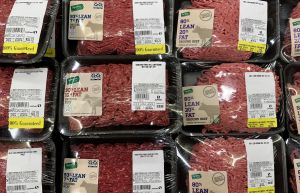
The American Red Cross is asking people to donate blood because of a severe blood shortage. Last week, the Red Cross staged the state's largest single-day blood drive in collaboration with NBC Connecticut, Telemundo CT, and the Hartford Yard Goats. The event was a huge success, with 310 units of blood collected. Even though it exceeded the goal of 300, there are only enough units to keep Connecticut hospitals stocked for one day.
Connecticut hospitals require around 302 units of blood each day, says the American Red Cross. This comes at a time when the country is experiencing a blood shortage. "With America opening up after the pandemic, individuals are starting to take care of some of the medical procedures that weren't being taken care of previously," said Peter Boucher of the American Red Cross.
An unusual rise in trauma, emergency transplant prompts blood shortage
Aside from trauma and organ transplants, elective procedures postponed during the pandemic are now on the rise, depleting the country's blood supply. Connecticut Children's Hospital's Dr. Michael Isakoff said the hospital had not been adversely affected, but they are making preparations, CT via MSN reported.
At Connecticut Children's, Isakoff is the medical director in charge of cancer and blood diseases. The nation's blood shortage is alarming, as cancer and anemia sufferers frequently require transfusions. Several circumstances cause the scarcity, says Isakoff. During the pandemic, several blood drives were canceled. This, along with the resumption of elective operations, has resulted in an imbalance.
According to the Red Cross, hospitals are also responding to unexpectedly high cases of trauma and emergency transplants. Blood needs at trauma hospitals are up 10% over last year, according to officials. State hospitals are reviewing the issue, per the Connecticut Hospital Association.
Read Also : Parents Submit Face Masks for Lab Testing; Harmful Pathogens Found on Children's Face Masks
Blood shortage could risk patients' life
When a patient learns that they have been chosen for a life-saving transplant, but the procedure must be postponed owing to blood shortage, it may be distressing. In hospitals around the country, there is a significant blood shortage, and supplies are critically low. The University of Louisville Hospital is no exception.
According to a transplant surgeon at the hospital, several causes, including an increase in trauma cases, results in more transplants conducted in the United States. Individuals rescheduling elective procedures that were canceled during the pandemic are also contributing to the shortage. The lack of blood is highly alarming to the UofL Health Traumer Transplant Center staff.
Transplanting livers, lungs, and hearts necessitates a huge volume of blood, and postponing such surgeries might put some patients' lives at risk. "One of the things we're starting to tell people is, 'You might have to bank some blood for yourself," says Dr. Christopher Jones, a transplant surgeon at the University of Louisville, as per WAVE3.
Cancer patients use about a fourth of blood donations, and the American Red Cross is experiencing a severe blood shortage, so thousands of people need help. To fulfill hospital demand in Vermont, the Red Cross needs to collect 80 pints of whole blood per day.
To give blood, you must weigh at least 110 pounds, according to the Red Cross. If you have just had a COVID-19 shot, there's no need to wait before donating. Per NBC5 via MSN, it is partnering up with the Red Cross for a community-wide blood drive on Friday. The blood drive is being held across Vermont, northern New York, and western New Hampshire.
Related Article: CDC, FDA Investigate Massive Tuberculosis Outbreak Linked to Contaminated Bone Repair Product Used in Over 100 Patients
@YouTube
© 2026 HNGN, All rights reserved. Do not reproduce without permission.








